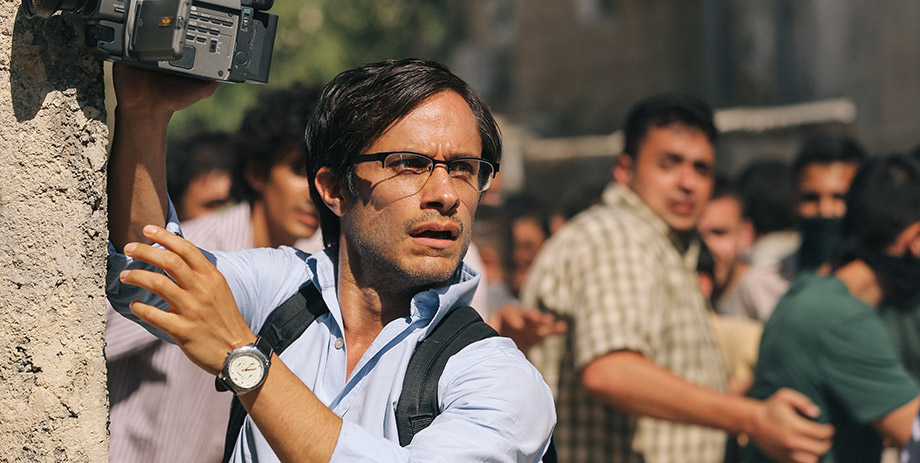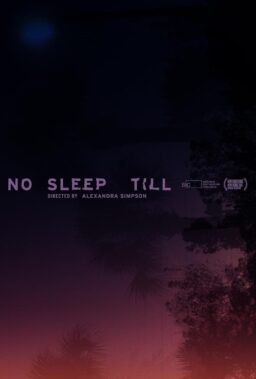Iranian Canadian journalist Maziar Bahari was in his home
country in 2009 when the world’s eyes were on the volatile elections taking
place. After violence erupted, the Tehran authorities were looking for any
potential instigators for the opposition. Bahari happened to do an interview segment
with Jason Jones on “The Daily Show with Jon Stewart,” in which he noted how
similar Iranians and Americans are, and that it is propaganda that keeps us
apart more than fact. The government of Iran didn’t like this connection with a
power structure supporting its replacement, and so Bahari was arrested,
imprisoned and abused for five months.
Five years later, Jon Stewart makes his directorial debut
telling Bahari’s story. Starring Gael Garcia Bernal as Bahari, “Rosewater” made
its TIFF premiere Monday night, and Stewart was kind enough to sit down with us
the next morning to discuss the new international landscape his first film
captures.
You said last night in your intro that “the definition of
journalist has expanded.” I want to start there. What is that definition now
and has it expanded at least in part because the old definition failed?
I don’t know that the old definition failed. I think it’s
expanded in many respects because technology democratized it. I think there was
more of a sense in the old days that there was a very separate, dedicated
aspect that followed a much more traditional place, and was embedded in certain
situations. It was done in a much more traditional…”we’re going to set up a
camera here.” And then the Vietnam era sort of changed that. “We’re not just
going to set up a camera there. It’s not going to be a newsreel. We’re going to
embed. And we’re going to get pictures that are more vital and on the scene.”
Camera technology was unwieldy, so it was difficult to broadcast moments.
People always talk about the Kennedy assassination as the first televised
event. Now, there’s not a person out there, really, no matter what economic or
social level, that does not have the ability to document their surroundings.
And so it changes the vetting process but it opens the field.
And that’s my follow-up. Does it eliminate a checks and
balances system that we might need? We used to look at journalists as a higher
standard of sources, corroboration, etc. Has this hurt that process at all?
I think so. That process must evolve with it. That being
said, there was a certain fallibility in believing. Remember the Maine. Gulf of
Tonkin. It’s not as though that system wasn’t corruptible or didn’t have its
own failings. We sometimes have a nostalgia—“It’s not like when Cronkite was
around.” Well, that’s a nostalgia that does not necessarily represent the
reality.
So what’s the role of the filmmaker in all of this? Do you
feel an educational responsibility to shed light on a part of the world that
our journalistic structure may have failed to capture?
How so?
I was watching the film and thinking to myself, “This is a
story that not a lot of people know about in a part of the world that not a lot of
people know about other than what they see on the news.” Did that element draw
you to it? Like a journalist, almost.
I don’t know if it’s in the journalistic sense, it’s in the
narrative sense. I think there are aspects of it that are that way. That being
said, if you’re from that part of the world, the film will seem simplistic and
reductive. It’s still an outsider who does not have the nuance of the cultural
experience. As well as we had from Maziar to be there to stop our egregious
errors—“There’s no bagel shop on Valiasr Street.”—if you are Iranian or have family there, I think you will still
view it as a bit ham-handed. It’s not what YOU understand as the nuance of that
culture. But, hopefully, for a Western audience, it’s more layered and nuanced
than what they’ve become accustomed to. Maybe it’s not eye-opening in a
journalistic sense but a humanistic sense. Maybe they will find common cause or
a feeling of camaraderie. When something has been painted as “An Axis of Evil,”
it brings it to a cartoonishy villainous place. If you can view something like
that…the standard we are operating under is the lowest you can operate under,
which is they’re all Snidely Whiplash, burning flags and shouting “Death to
America!” If that’s the standard, I think we raised it. That being said,
someone with a deep understanding of that region will still go, “Really?”
So how do you fight that deeper perception from holding you
back? How you fight the apprehension that comes from a white man telling an
Iranian story? Or do you just have people around you to protect you from that
concern?
You have to own it. You can’t pretend that you’re not. That’s
what I did. The kind of thing that I wanted to do was create what I called a “quiet
inauthenticity.” I was never going to capture it with the nuance of Farhadi and
all the great Iranian filmmakers. Knowing that, I wasn’t going to pretend that
I was. Which means the accents are not true. I have actors from eight different
countries. I tried to create a kind of patina of accent that was not
particularly recognizable to any region. It exists in its own indescript world.
It exists in a world that you probably can’t peg as anything. But as long as it’s
not too discordant. I wanted the inauthenticity to not be so egregious so as to
register and remove you from the storytelling. Since I can’t capture the
authenticity I have to create a world of, sort of…
Commonality.
That’s correct. That’s what you hope. I said to Maziar, “We’ll
do this in Farsi.” He said, “Why? You don’t speak Farsi.” “Oh, right, OK.”
There’s an undercurrent of idealism in the film in the sense
that it’s about holding on to values and exposing corruption. How you do
maintain that idealism in a world that is arguably getting darker and more
cynical by the day? Why are you not yet cynical?
I think because I believe it. I guess I maintain it because
I try to take a long view of history. I came of conscious age when Robert
Kennedy was assassinated, when Martin Luther King was assassinated, when the
Vietnam War was going on, when we were evacuating Saigon, when the President of
the United States had to resign because he lied. They were tumultuous times.
Times have continued to be tumultuous. Then again, in a long view, women used
to not be able to vote, black people had separate restaurants, gay people
couldn’t get married…Over time, you see the power of common cause and the power
of humanity. And you know that it is the natural state of being.












